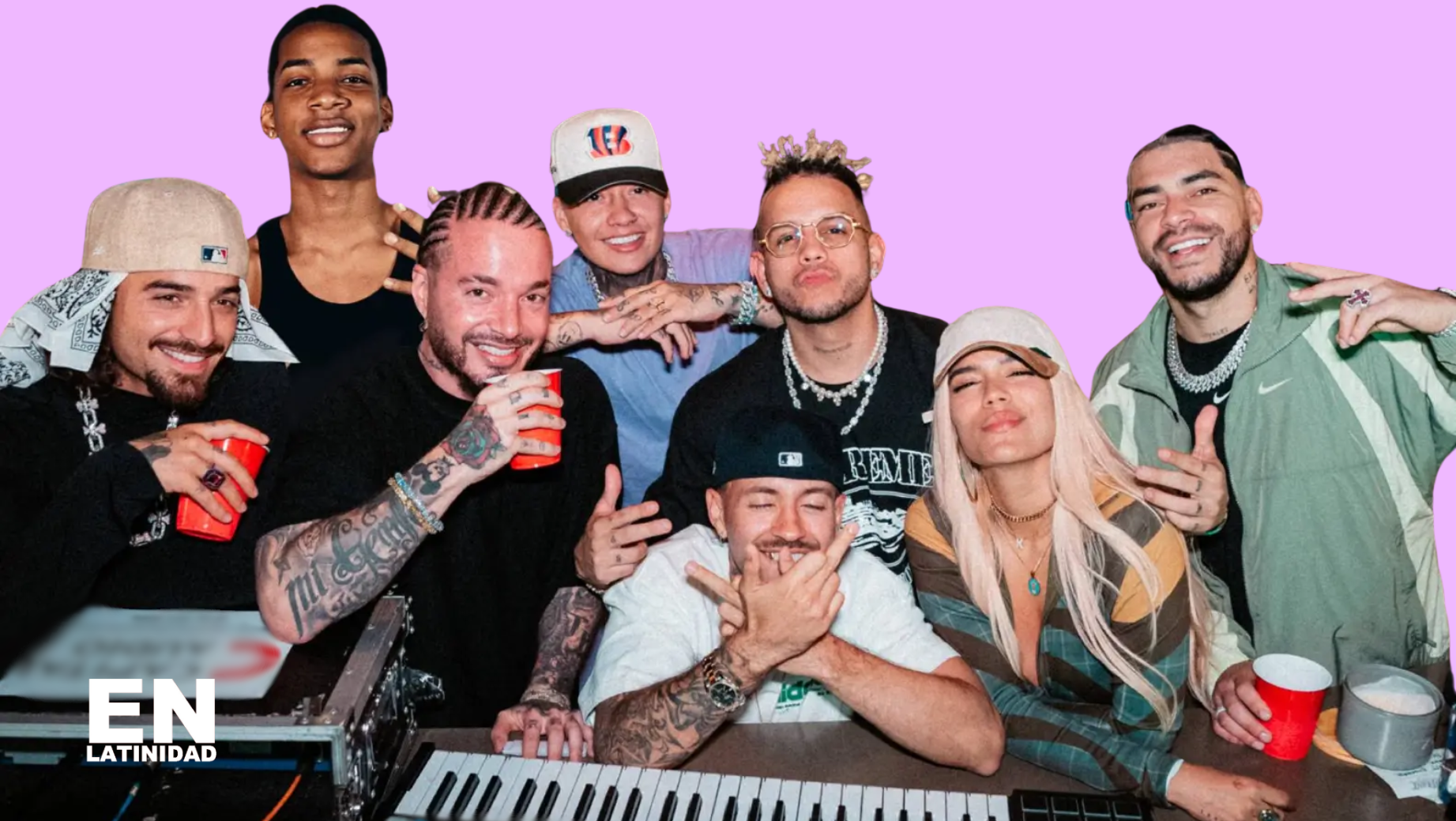The Controversy Around “+57”: Colombia’s Reggaeton Elite Faces Legal and Cultural Scrutiny
When “+57” first dropped, it was marketed as a historic collaboration between Colombia’s biggest reggaeton stars: Karol G, J Balvin, Maluma, Feid, Ryan Castro, Blessd, and producer Ovy on the Drums. For years, fans and industry insiders speculated about the moment when Colombia’s top urbano artists would unite to show off their collective dominance. Instead of a celebratory anthem, though, “+57” has quickly become a flashpoint for criticism, sparking a legal ruling from Colombia’s highest court and a cultural debate about who gets to represent the country’s sound and image.
At the heart of the backlash is a single lyric. In the song, one of the performers brags about a girl who was “una mamacita desde los 14 años”—essentially calling a 14-year-old sexually attractive. The lyric was later altered to “desde los 18 años” in streaming platforms, but by then, the damage was done. The Constitutional Court of Colombia ruled that the original version of the song violated the rights of minors by sexualizing a child. While the court did not issue financial penalties, it did order the artists and their labels to refrain from producing or promoting content that could harm children or adolescents. The ruling emphasized Colombia’s commitment to protecting minors, citing the principle of “protección integral.”
Karol G, who has often been praised for her professionalism and ability to balance mainstream success with a sense of artistry, publicly apologized. In a heartfelt statement, she said she never intended to sexualize children, took responsibility, and admitted she still has “mucho por aprender.” Her words humanized her, but they didn’t deflect from the gravity of the issue: one of the most anticipated collaborations in Colombian reggaeton was now tainted by accusations of child sexualization, poor judgment, and cultural insensitivity.
Beyond the court case, Rolling Stone en Español published a scathing review of “+57,” calling it a “disaster.” The critique focused not only on the controversial lyric but also on the uninspired nature of the project itself. With a roster stacked with household names, expectations were sky-high. Instead, the song leaned on cliché phrases about partying and women’s bodies, with little individuality from each artist. Rather than elevating the so-called “Medellín sound,” it recycled generic reggaeton tropes, missing the chance to present Colombia as a creative hub with something distinct to say. The production, while polished, was described as lacking innovation. In short, what should have been a landmark cultural moment turned into a letdown both musically and ethically.
It is also impossible to ignore the optics of who was—and who wasn’t—involved in “+57.” The collaboration has been branded as a showcase of the “Colombian reggaeton elite,” yet the lineup is noticeably homogenous. All but one of the featured stars are men, leaving Karol G as the sole woman in a project that claims to represent the country’s urbano talent. Even more glaring is the absence of visibly Black Colombian artists. Colombia is home to one of the largest Afro-descendant populations in Latin America, and Black musicians have historically been central to the creation and evolution of reggaeton. Yet in this high-profile collaboration, the faces at the table are overwhelmingly white or light-skinned, reflecting a troubling erasure that mirrors broader patterns of exclusion in the Latin music industry. When the “elite” of Colombian reggaeton is put on display, the picture presented is male-dominated, whitewashed, and far from the country’s full reality.
The court case, then, is not just about a single offensive lyric. It exposes deeper fractures in how reggaeton is marketed, who gets to speak for Colombia, and what narratives are prioritized. The lyric about a 14-year-old did not come out of nowhere—it emerged from a music industry that has often normalized machismo, sexual exploitation, and stereotypes for profit. While the legal system intervened in this case, it raises the question of why artistic self-regulation failed so spectacularly in the first place. With so many seasoned professionals involved in crafting “+57,” how did no one flag the lyric as problematic before it went public? The oversight points to an industry insulated by privilege, where accountability is reactive rather than proactive.
Ultimately, “+57” is now remembered less as a celebration of Colombian reggaeton and more as a cautionary tale. The creative direction fell short of its promise, both musically and ethically. Instead of showcasing artistry and innovation, it leaned on formulas that perpetuate harmful narratives. Instead of reflecting Colombia’s rich diversity, it spotlighted a narrow slice of the industry. And instead of uniting fans in pride, it left many questioning the integrity of their idols.
What remains is a reminder that reggaeton, as global as it has become, cannot escape scrutiny. When the so-called “elite” fail to uphold basic responsibility—toward children, toward cultural authenticity, toward inclusivity—the music loses more than just credibility; it loses the opportunity to tell the stories of the very people who gave birth to the genre in the first place.





Leave a Reply
You must be logged in to post a comment.